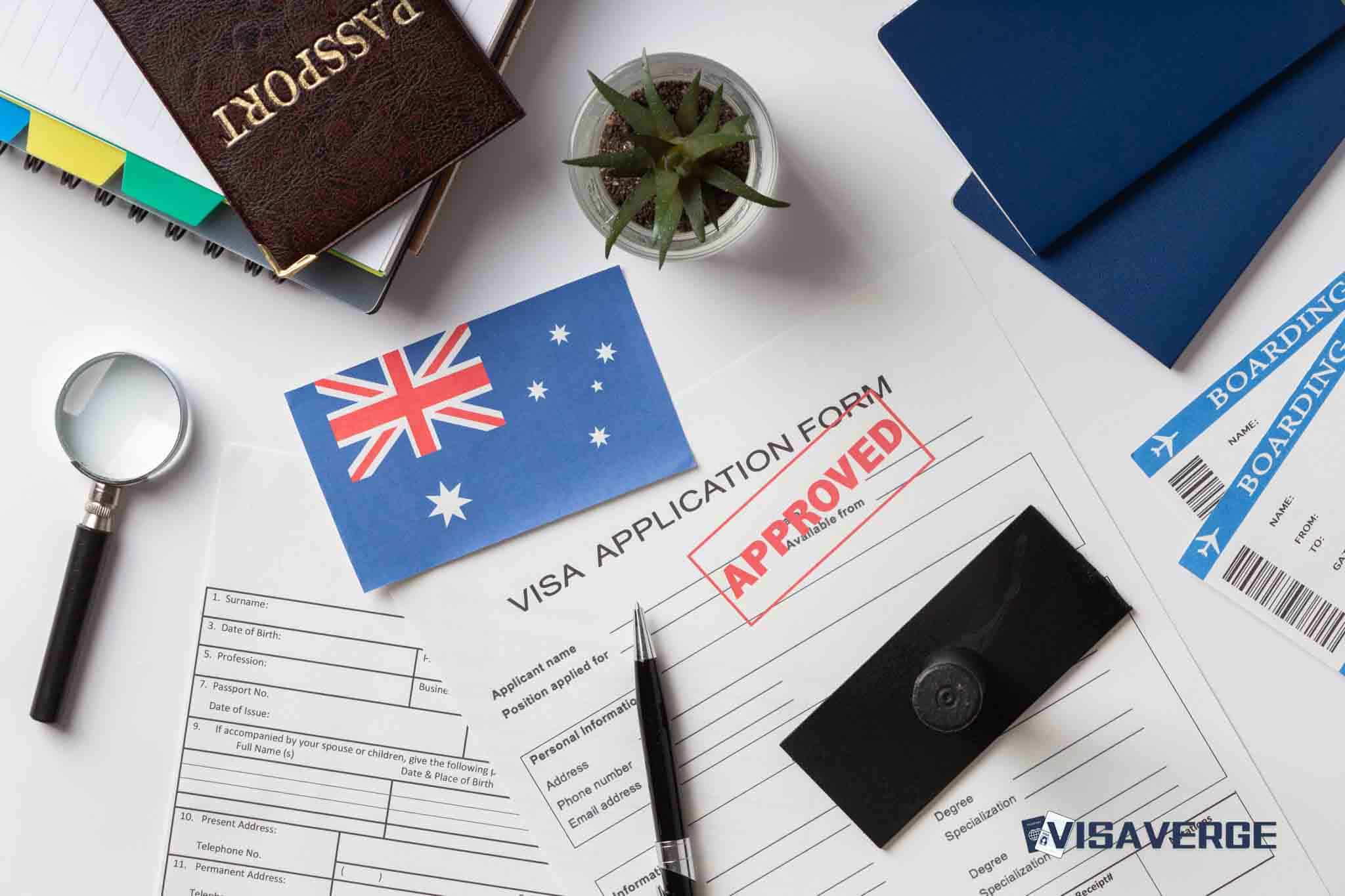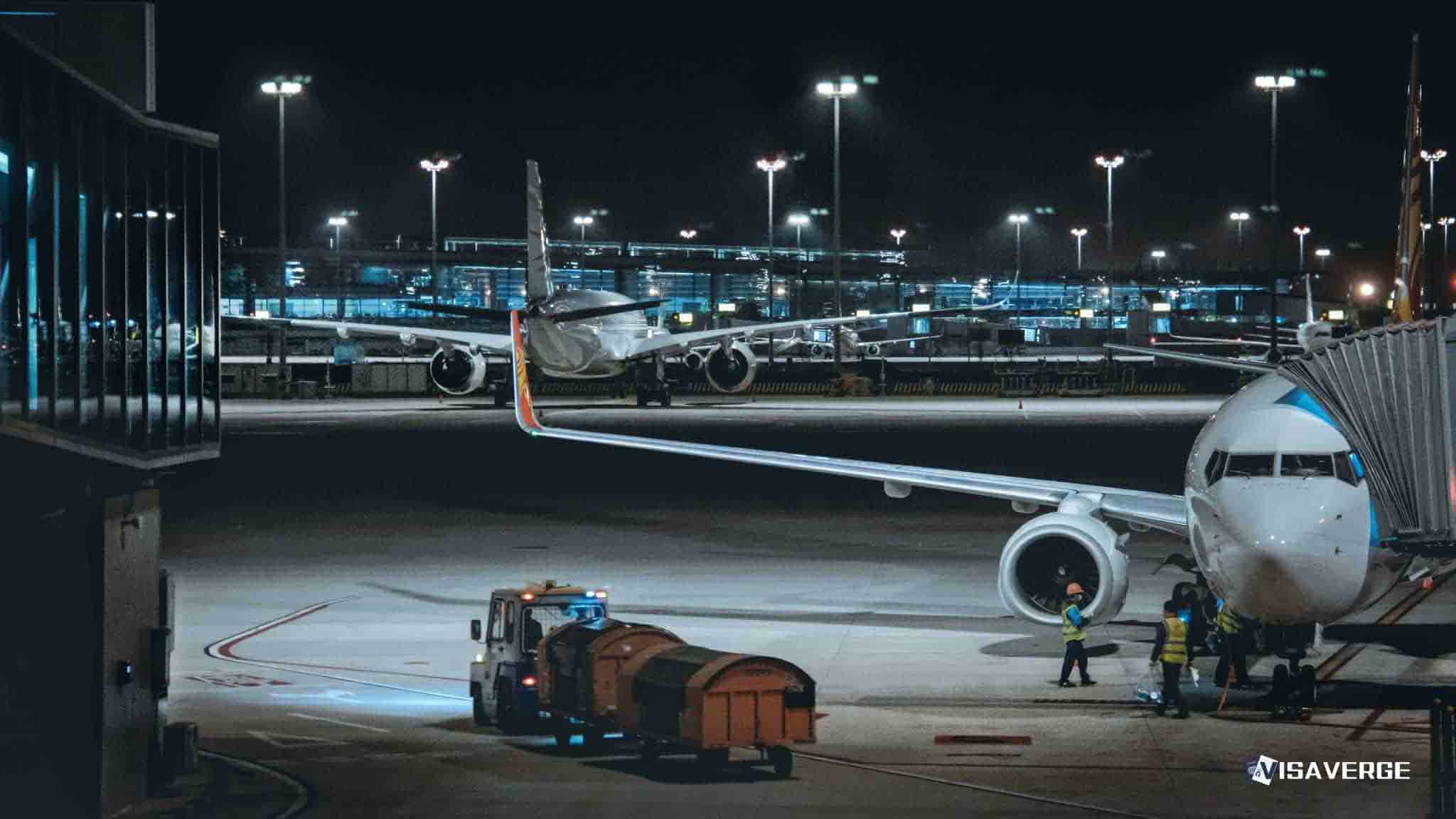What Happens If False Information Is Provided on an Australian Visa Application?
When embarking on the journey to visit or move to Australia, the first step is often to fill out an Australian visa application. It’s a process that requires honesty and accuracy, as the integrity of the information you provide is crucial. But what are the consequences if the Department of Home Affairs discovers that an applicant has been less than truthful? Here we delve into what could happen if someone is found to have provided false information during their visa application process.
Understanding the Consequences of Misrepresentation
The Australian visa process is designed to be thorough, ensuring that all entering the country meet its legal and safety standards. Providing false information on a visa application isn’t simply frowned upon – it carries significant penalties.
Cancellation of Visa and Future Ineligibility
If it’s found that you have provided false information, or otherwise misled immigration officials:
- Your visa can be canceled.
- You may be barred from being granted another Australian visa for a period, typically three years. This applies even if the information given did not impact the decision to grant the visa initially.

Legal Implications
- Criminal charges could be brought against you. Providing false documents or fraudulent information can result in prosecution, leading to fines or even imprisonment.
Impact on Citizenship or Permanent Residency Applications
- Any false information can have a domino effect, impacting not just your current visa status but also future applications for permanent residency or citizenship.
The Importance of Honesty in Your Australian Visa Application
The adage “honesty is the best policy” holds exceptionally true when dealing with immigration matters. Being forthright and transparent in your application ensures you avoid these severe penalties. If you are unsure about how to answer a question on an application, it’s better to seek guidance from an official source or a registered migration agent rather than guess or falsify information.
How to Correct Mistakes on Your Visa Application
Mistakes do happen. If you realize that there’s an error on your application after submitting it, be proactive:
- Contact the Department of Home Affairs immediately to correct the mistake.
- Provide a clear explanation along with the correct information.
Getting it Right First Time: Tips for Your Visa Application
- Double-check all the information to ensure accuracy before submitting.
- Keep documented evidence that supports the claims you make in your application.
- Consult the Department of Home Affairs website or speak to a registered migration agent if you are uncertain.
In conclusion, the ramifications of providing false information on an Australian visa application can be severe, affecting not only your current travel plans but also future prospects in Australia. The integrity of your application is fundamental, so take the time to ensure that all the information provided is truthful and accurate to avoid any potential consequences of misrepresentation in the Australian visa process. Adhering to these guidelines helps protect your aspirations of studying, working, visiting, or living in Australia. Remember, when it comes to immigration, honesty isn’t just the best policy—it’s the only policy.
Expert Insights
Did You Know?
- Australia has one of the highest immigration rates in the world: With a current population of around 25 million, Australia has been shaped by immigration throughout its history. It has one of the highest immigration rates per capita globally, making it a truly multicultural nation.
- Australia’s immigration policy is largely skill-based: Australia prioritizes immigrants with valuable skills that can contribute to the country’s economy. The points-based immigration system evaluates factors such as age, education, work experience, and language proficiency to determine eligibility for permanent residency.
-
Australia has a long history of accepting refugees: Australia has a strong history of welcoming refugees and providing them with a new home. Since 1947, Australia has resettled over 915,000 refugees, offering them safety and opportunities for a better future.
-
The population of Australia is diverse: Australia is often referred to as the “land of immigrants” due to its diverse population. More than one-quarter of Australians were born overseas, and over 300 languages are spoken across the country. This cultural diversity enriches Australian society and contributes to its vibrant multiculturalism.
-
Indigenous Australians have unique rights and recognition: While immigration has significantly shaped Australia, it is important to acknowledge the country’s Indigenous population. The Aboriginal and Torres Strait Islander peoples, who are the first inhabitants of Australia, have distinct rights and are recognized as the custodians of the land.
-
Australia offers various visa options for different purposes: Apart from study, work, and tourist visas, Australia offers specific visa programs for individuals with exceptional abilities, entrepreneurs, sponsored workers, and family members. This range of visa options cater to different needs and aspirations of those seeking to migrate to Australia.
-
Australia has a visa application fee: When applying for an Australian visa, most applicants are required to pay a fee. The fee amount varies depending on the type of visa and the intended duration of stay. These fees contribute to the administration and processing of visa applications.
-
The Department of Home Affairs manages Australia’s immigration policies: The Department of Home Affairs is responsible for managing Australia’s immigration policies and visa applications. They ensure the integrity of the process, maintain national security, and make decisions regarding visa approvals and cancellations.
-
The Australian citizenship test: Individuals seeking Australian citizenship are required to pass a citizenship test. The test evaluates their knowledge of Australian history, culture, laws, and values. It is designed to ensure that new citizens are well-informed about their adopted country.
-
Periodic reviews of Australia’s immigration policies: Australia periodically reviews its immigration policies to ensure they align with the country’s changing needs. These reviews may result in adjustments to visa categories, eligibility criteria, or quotas to reflect evolving economic, social, and demographic factors.
Remember, immigration is a multifaceted and ever-evolving topic. Exploring these lesser-known facts can provide a deeper understanding of the diverse world of immigration and its impact on Australia’s society and culture.
Learn today
Glossary or Definitions:
- Australian visa application: The formal process of applying for permission to enter, visit, study, work, or live in Australia.
- Department of Home Affairs: The government department responsible for managing immigration, border security, and citizenship matters in Australia.
-
Misrepresentation: Providing false or misleading information on an Australian visa application.
-
Visa cancellation: The act of revoking or invalidating a previously granted visa due to the discovery of false information or other violations of visa conditions.
-
Future ineligibility: Being barred from being granted another Australian visa for a specified period, typically three years, as a consequence of providing false information on a visa application.
-
Criminal charges: Legal action taken against an individual for committing an offense, such as providing false documents or fraudulent information, which can result in fines or imprisonment.
-
Permanent residency: The status of being a lawful resident in a country, with the rights and privileges associated with that status, usually granted through a separate application process after meeting specific criteria, and often a pathway to citizenship.
-
Citizenship: The status of being a member of a particular country, with full legal rights and responsibilities, typically obtained through a naturalization process.
-
Registered migration agent: A trained and authorized professional who provides immigration advice and assistance with visa applications, maintaining registration with the relevant regulatory body.
-
Mistake: An error or oversight made on an Australian visa application, such as providing incorrect information.
-
Department of Home Affairs website: The official online platform provided by the Australian government’s Department of Home Affairs, where applicants can access information and resources related to visas and immigration.
-
Domnio effect: The chain reaction or cascading consequences that occur as a result of one action or event, in this context, referring to the potential impact of providing false information on future visa, permanent residency, or citizenship applications.
-
Migration: The act or process of moving from one country to another for the purpose of settling or residing there.
-
Integrity: The quality of being honest, truthful, and adhering to high moral and ethical principles.
-
Registered migration agent: A trained and authorized professional who provides immigration advice and assistance with visa applications, maintaining registration with the relevant regulatory body.
-
Aspirations: Ambitions or goals, in this context, referring to the desire to study, work, visit, or live in Australia.
-
Adherence: Conforming to or following a particular rule, guideline, or principle, in this context, emphasizing the importance of honesty and accuracy in Australian visa applications.
So, remember folks, honesty is the key when it comes to your Australian visa application. Don’t risk the consequences of providing false information. If you want to explore more on this topic or need expert guidance for your visa application, head over to visaverge.com. They’ve got all the information you need to navigate the immigration process smoothly. Happy visa application-ing, mate! 🦘🇦🇺🔒
FAQ’s to know:
FAQ 1: What are the consequences of providing false information on an Australian visa application?
Answer: Providing false information on an Australian visa application can have serious consequences. If discovered, your visa can be canceled, and you may be barred from being granted another Australian visa for a period of time, typically three years. Additionally, criminal charges could be brought against you, resulting in fines or imprisonment. Any false information can also impact future applications for permanent residency or citizenship.
FAQ 2: What should I do if I made a mistake on my Australian visa application?
Answer: If you realize that there is an error on your visa application after submitting it, it’s important to be proactive. Contact the Department of Home Affairs immediately to correct the mistake and provide a clear explanation along with the correct information. Taking prompt action can help rectify any inaccuracies and minimize potential consequences.
FAQ 3: How can I ensure accuracy in my Australian visa application?
Answer: To ensure accuracy in your Australian visa application, it is important to double-check all the information before submitting. Keep documented evidence that supports the claims you make in your application. If you are uncertain about how to answer a question, consult the Department of Home Affairs website or speak to a registered migration agent for guidance. Taking these steps will help you get it right the first time and avoid potential issues in the visa application process.
What did you learn? Answer below to know:
- True or False: Providing false information on an Australian visa application can result in the cancellation of the visa and future ineligibility.
- What are the potential legal implications of providing false information on an Australian visa application?
a) Increased processing time
b) Mandatory fine
c) Prosecution and possible imprisonment
d) Escalated visa fees
- How should you handle mistakes on your visa application if you realize there is an error after submission?
a) Do nothing; the application cannot be amended
b) Immediately contact the Department of Home Affairs and provide a clear explanation with the correct information
c) Wait for the Department of Home Affairs to contact you for clarification
d) Consult a migration agent for advice but take no further action







